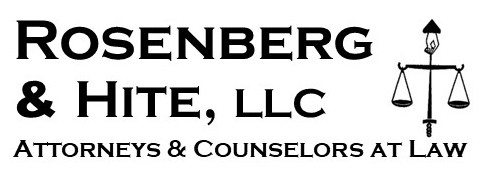Bankruptcy in sacred text
In advising a bankruptcy client, I often refer to sacred texts that may hold some weight with the debtor. The Old Testament teaches that every seventh year was decreed as a Sabbatical year wherein all debts were released (Leviticus 25:8-54, and Deuteronomy 15:1-3).
The Quran states, “And if someone is in hardship, then let there be postponement until a time of ease. But if you give from your right as charity, then it is better for you, if you only knew.”- Sura Al-Baqara Verse 280.
Bankruptcy has been with us throughout the course of human history. It is a safety valve with which society tempers commerce and credit. Even in societies thought to be lawless, you will find bankruptcy. Even the Yassa of Genghis Khan outlined bankruptcy, however it contained a provision that demanded the execution of anyone who became bankrupt three times.
Chapter 7 Bankruptcy
In Chapter 7, a trustee is appointed to review your property. Any property of value that cannot be exempted under either federal or state laws will be liquidated to pay creditors. Hence the importance of finding an attorney with a strong grasp and understanding of the exemption laws and case law. Such an attorney will be able to assure or warn their client usually in the first consultation whether or not any of their personal or real property will be subject to abandonment by the trustee (left to the debtor) or will be assumed by the trustee (taken for liquidation).
In a chapter 7, the filer will receive a discharge of all unsecured debt (not attached to collateral, i.e. house, car, or jewelry) owed prior to filing. It also allows discharge of tax debt assessed more than three years before filing and provides an automatic stay of all court proceedings. Last, you can discharge the deficiency on a home mortgage and abandon the property. This can be done without fear of reprisal, stops wage garnishment, and ends bank executions.

Chapter 13 Bankruptcy
In a Chapter 13 bankruptcy, you may keep your property, but you must earn wages or have some other source of regular income to be able to pay part of your income to your creditors. The court must approve your repayment plan and your budget. A trustee is appointed and will collect the payments from you and pay your creditors.
In a Chapter 13, you will save your home and force the bank into a payment plan on your arrearage. You can discount your unsecured debt to a smaller percentage based on your current income. You can keep valuable assets as long as you can make your payments. Most filing a 13 bankruptcy are in need of the automatic stay to avoid strict foreclosure or foreclosure by sale. The filing of such a case will immediately stop the foreclosure process and give enough time to make other plans. These plans may include raising enough money to come up to date with the mortgage or entering into a modification or forbearance agreement with the bank.
Bankruptcy secrets and myths
Bankruptcy Frequently Asked Questions
- Should I file Bankruptcy?
That depends. What are your assets? How much debt do you have? What kind of debt do you have? How much income does your household bring in? How much do you spend in expenses? How long have you lived in Connecticut? How many people live in your home? All the answers to these questions and more will help an experienced bankruptcy attorney determine the eligibility for a party to file bankruptcy as well as indicate what benefit may be derived.
- Will I lose my house in Bankruptcy?
It is unlikely that you would lose your house as your attorney will advise you prior to filing if that’s a risk. You would only lose your house if you have too much equity in the property. Currently, Connecticut exemptions (as of 10/1/21) allow for a debtor to keep $250,000.00 of equity in their home.
- How much debt is enough to file?
There is no specific measurement for this question, however, I prefer a debtor to have a minimum of twenty thousand dollars of unsecured debt and a correspondingly low income, making payback a great difficulty.
- I make money but can’t afford my bills. Can I file?
You can! As of 10/15/04, the bankruptcy courts require THE MEANS TEST. This is a collection of forms that compare a household income to IRS standards along with many adjustments, to help ascertain if a party qualifies. The Test has three-level and is very complex. A good attorney can help a party that otherwise might not qualify to be eligible if certain circumstances are considered. There are also possible exemptions from the Means Test that may apply.
- What is the process of filing Bankruptcy?
All your debts and assets and income and expenses are correlated and put into a set of documents that give a basic sketch of your entire financial life. This runs between 50 and 70 pages on average. After substantial review with your attorney, this book of documents is filed through a complex court filing system (ECF). You are then assigned a judge, trustee, and date and time for your hearing (341 Hearing). This hearing is roughly thirty days after your filing the documents. At your hearing, you will answer a series of questions (which your attorney will hopefully have prepared you for). Subsequently, you will obtain your discharge if you are successful, and finally, your case will be eventually closed. From the time of filing, the entire process runs 3- 5 months on average.
- What is the Means Test?
This is a collection of forms that compare a household income to IRS standards along with many adjustments, to help ascertain if a party qualifies. The Test has three-level and is very complex. A good attorney can help a party that otherwise might not qualify to be eligible if certain circumstances are taken into account. There are also possible exemptions from the Means Test that may apply.
- Will filing Bankruptcy save my house?
Bankruptcy can save your house! As soon as a bankruptcy is filed, the Automatic Stay takes effect. This is a legal concept that basically takes your house off the table until the bankruptcy is resolved or until the creditor motions in the bankruptcy case to get Relief from the Stay.
- I’m in Foreclosure, can Bankruptcy help?
Bankruptcy can pause and possibly stop your foreclosure.
- Is my Bankruptcy Public information?
Technically, yes. However, the only place this information is usually accessible is on your credit report (sometimes) and by way of the BK/ECF Electronic Court Filing System which requires a user ID, password, registration through the Courts and is basically only accessible by attorneys and usually only navigated by bankruptcy attorneys.
- How long does it take to file Bankruptcy?
That depends on how complex your financial life is, your ability to obtain certain financial documents, and the speed at which your attorney works.
- What do I need to do to file Bankruptcy?
You need to be able to pass the Means Test, and pass the residency requirement.
- How long after filing do my creditors stop calling?
Letters to your creditors are sent out with the filing of the case. They get a notice by mail roughly within ten days of filing and stop immediately when they receive notice.
- Do you need an attorney to file bankruptcy?
Trick Question? No, you do not need to be an attorney. A regular attorney won’t be helpful enough. You need an experienced Bankruptcy Attorney. And yes, a party can file pro se, but that’s equivalent to changing the transmission on your car with zero automotive knowledge, experience, or aptitude.
- Should I file Chapter 7 or Chapter 13? What's the difference?
Chapter 7 is a complete discharge of unsecured debt. Chapter 13 is a structured repayment plan of debt. They each have their specific uses beyond this basic understanding.
- Can I get rid of student loans?
Technically, maybe. In all reality – Probably not. At least not yet.
- Can my medical bills be discharged in Bankruptcy?
Yes. Absolutely.
Terms used in Bankruptcy
- 341 Hearing: This is the meeting of creditors hearing and takes place after you file a bankruptcy petition. You must appear at this hearing. It is presided over by a federal trustee. You will be asked a series of questions about your petition and any assets or changes to your situation. Your attorney will be with you at this hearing. Hearings may be in person at the federal court hour meeting room (not a courtroom) or telephonic. This is the opportunity for creditors to appear and discuss their claims with the debtor and the trustee.
- Adversary Proceeding: A lawsuit filed in a bankruptcy case by a creditor.
- Audit: An investigation into the facts of a bankruptcy petition. Audits can be random or triggered by suspicion of fraud. During an audit, it is important that you provide all of the documentation requested by the trustee as soon as possible.
- Automatic Stay: At the time you file your bankruptcy, this stops creditors from trying to collect debts until the proceedings are complete. If at the end of the proceedings you receive a discharge, creditors will not continue. In the event your bankruptcy fails and no discharge is granted, your creditors may continue to collect.
- Bankruptcy: The legal process of discharging or erasing debt obligations.
- Chapter 7: This is the type of Bankruptcy that discharges or erases your debt without a repayment plan.
- Chapter 13: This is a type of Bankruptcy that consolidates your debt and allows a debtor to repay debt through a federal trustee.
- Creditors: Companies or individuals that are owed money by debtors.
- Debtor: A person who owes money to creditors.
- Discharge: The statutory injunction against any collection efforts on debt included in the bankruptcy petition. This is the point when your bankruptcy is complete and effective. You will receive a notice by mail from the court with your official Discharge Notice.
- Exemptions: Laws that protect your assets in bankruptcy. There are both federal and state exemptions that may be used in your bankruptcy.
- Filing: In relation to Bankruptcy, the act of submitting the Bankruptcy Petition to the court. This is the point in time that may trigger an automatic stay and is the point at which you have officially filed bankruptcy. Debts prior to this date are covered by the filing. Debts incurred after this date are NOT covered in the bankruptcy filing.
- Means Test: This is a collection of forms that compare a household income to IRS standards along with many adjustments, to help ascertain if a party qualifies to file bankruptcy.
- No-Asset Bankruptcy: A bankruptcy filing and discharge indicating that you have no assets that the trustee can sell to repay your creditors. Even if you own assets, your bankruptcy attorney may use allowed exemptions to protect any equity you may have on assets like clothes, jewelry, cars, and your home.
- Petitioner: The Debtor who is filing the bankruptcy petition.
- Secured Debt: Debt that is backed by real property. Examples include Mortgages, recorded judgment liens, and car leases. These liens will not be removed in a standard bankruptcy filing, however, your personal liability will be. This means that if the creditor sells the property for less than the debt amount, you will not be responsible for the remaining balance.
- Unsecured Debt: Debt that is not backed by any property.
